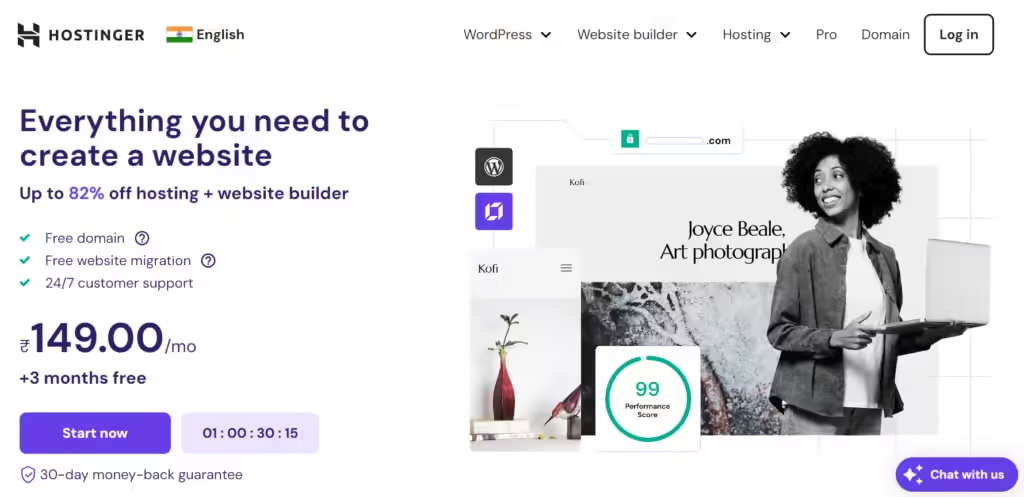How to Make Money Through Blogging: A Comprehensive Guide
Blogging is one of the most lucrative and sustainable ways to make money online. Many people have turned their passion into a profitable business through blogging. For example, Amit Aggarwal, who runs the blog Labnol.org, earns an impressive ₹45 crores annually. Similarly, Shraddha Sharma of YourStory.in makes around ₹ lakhs per month, and Arun Prabhu Desai, who runs the blog Trak.in, earns about ₹1 lakh per month. These success stories illustrate how blogging can be a highly rewarding business model with minimal investment.
What is Blogging?
At its core, blogging is like having your own personal website where you can write about topics you’re passionate about—whether it’s tech, fashion, music, dance, or anything else. Each time you write, you create a blog post. These posts can contain text, videos, pictures, graphics—anything that helps convey your message.
One of the best things about blogging is that you can do it from anywhere in the world, and your content will be accessible globally. People from the U.S., London, or any other part of the world can visit your blog and engage with your content.
Blogging vs. Vlogging
There’s often confusion between blogging and vlogging, so let’s clear that up. While vlogging involves video content and often requires you to appear on camera, blogging is more about writing and doesn’t require any on-camera presence. This makes blogging less time-consuming and more flexible. Once your blog gains traction, you can even automate much of the work by hiring a team to handle content creation, research, and posting. This level of automation is challenging to achieve with vlogging.
How Much Money Can You Earn From Blogging?
The potential earnings from blogging can be substantial. If you consistently create quality content and grow your audience, your blog can become a significant source of income. Some bloggers earn millions, while others make a comfortable living with far less effort than traditional jobs.
How to Start Your Own Blog
Starting a blog is easier than you might think. You only need three main things:
- Domain Name: This is the address of your website, like your online home. When someone types your domain name into their browser, they’ll be directed to your blog.
- Hosting: This is the space on the internet where your blog lives. All your content, images, and videos are stored on a hosting server.
- Content: This is what you write on your blog. Even if you think you’re not a great writer, there are tools like ChatGPT that can help you generate content quickly and efficiently.
Step-by-Step Guide to Starting a Blog
- Choose a Domain Name and Hosting:
- To get started, you need to pick a domain name and find a hosting provider. I recommend using Hostinger, which is affordable and easy to use. They offer various plans, with the Premium Plan allowing you to create up to 100 websites, manage up to 25,000 visitors per month, and enjoy 100GB of SSD storage.
- With Hostinger, you also get a free domain name, an SSL certificate for website security, and a free email account.
- Set Up WordPress:
- Most successful blogs are built on WordPress, a user-friendly platform. After selecting your hosting plan, install WordPress and choose the appropriate settings, including your site’s language, admin email, and password.
- Select a Theme and Customize Your Blog:
- Hostinger offers various pre-built themes that you can customize according to your blog’s niche. For instance, if you’re creating a tech blog, you might choose a theme that highlights tech products and reviews.
- You can also add essential plugins like email marketing tools, analytics, and SEO optimization tools to help manage and grow your blog.
- Create Your First Blog Post:
- After setting up your blog, you’re ready to create your first post. Use the WordPress editor to add your content, images, and any other media you want to include. Remember to choose a catchy title that will attract readers.
Conclusion
Blogging is a fantastic way to share your knowledge, experiences, and hobbies with the world while earning money. With minimal investment, you can start your own blog and potentially turn it into a significant source of income. Whether you’re passionate about technology, fashion, or any other topic, blogging allows you to reach a global audience and create a sustainable business model. So why wait? Start your blogging journey today!
FAQs
- How long does it take to start making money from blogging?
- Answer: The time it takes to start earning money from blogging varies widely and depends on several factors, including the niche you choose, the quality of your content, and your marketing efforts. Generally, it may take anywhere from 6 months to a year or more to start seeing significant income. Building an audience and gaining traction requires consistent effort and patience.
- Do I need to be an expert writer to start a blog?
- Answer: No, you don’t need to be an expert writer to start a blog. While strong writing skills can be beneficial, there are tools like ChatGPT and grammar checkers that can help you produce quality content. Additionally, you can always hire freelance writers or content creators if writing isn’t your strength.
- How much does it cost to start a blog?
- Answer: Starting a blog can be relatively inexpensive. The primary costs include domain registration and hosting. Domain names typically cost around $10-$15 per year, while hosting services can range from $2 to $10 per month, depending on the provider and plan. Some hosting services, like Hostinger, offer bundled deals that include a free domain name.
- What are the most effective ways to monetize a blog?
- Answer: There are several ways to monetize a blog, including:
- Affiliate Marketing: Promoting products or services and earning a commission for each sale made through your referral links.
- Advertising: Selling ad space on your blog or using ad networks like Google AdSense.
- Sponsored Posts: Partnering with brands to create content that promotes their products or services.
- Selling Products or Services: Offering your own digital products, courses, or consulting services.
- Memberships and Subscriptions: Providing exclusive content or perks to paying subscribers.
- Answer: There are several ways to monetize a blog, including:
- How often should I post new content on my blog?
- Answer: The frequency of posting new content depends on your goals and resources. Consistency is key. Many successful blogs post new content weekly or bi-weekly. It’s important to balance quality with quantity—aim to produce high-quality posts that offer value to your readers. Regularly updating your blog helps with SEO and keeps your audience engaged.
Credit:

